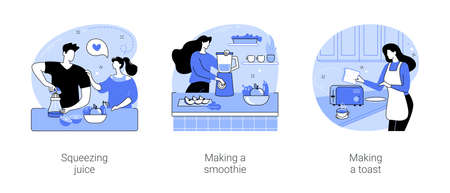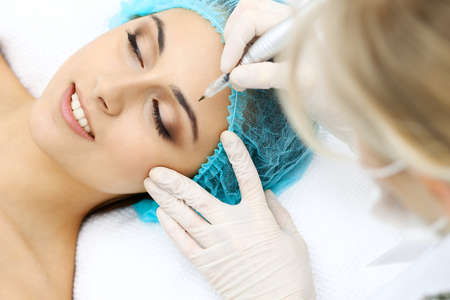Introduction to Non-Surgical Skin Rejuvenation
Non-surgical skin rejuvenation refers to a diverse range of medical and aesthetic treatments designed to enhance the appearance, texture, and health of the skin without the need for invasive surgical procedures. These treatments have become increasingly popular across the UK in recent years, reflecting both advancements in technology and changing cultural attitudes towards cosmetic enhancement. British clinics and high street skincare providers now offer an impressive variety of options, from chemical peels and laser therapies to injectable fillers and advanced facials.
The growing interest in non-surgical treatments is driven by several factors. Many people in the UK are seeking ways to address visible signs of ageing—such as fine lines, wrinkles, pigmentation, and loss of skin elasticity—without committing to the downtime or potential risks associated with surgery. Convenience, affordability, and a desire for natural-looking results also contribute to this trend. In addition, there is a greater openness about cosmetic procedures within British society; conversations around self-care and personal confidence have helped normalise these choices.
Ultimately, non-surgical skin rejuvenation offers a flexible approach for those wishing to refresh their appearance, maintain healthy skin, or simply boost self-esteem. As we explore this complete guide, we’ll examine the most popular treatments available in the UK, what they involve, their benefits, and practical considerations for anyone considering a journey towards healthier, more youthful skin.
2. Popular Non-Invasive Treatments Available in the UK
In the UK, non-surgical skin rejuvenation has become increasingly popular, with a wide array of treatments readily available at reputable clinics across the country. These non-invasive procedures are especially attractive to those seeking visible improvements without the downtime or risks associated with surgery. Below, we highlight three of the most commonly chosen options: chemical peels, microdermabrasion, and laser therapy.
Chemical Peels
Chemical peels remain a staple in many British aesthetic clinics. This treatment involves applying a specially formulated solution to the skin, encouraging exfoliation and promoting new cell growth. Clinics such as Harley Street Skin Clinic in London and sk:n Clinics across multiple cities offer various strengths of peels tailored to individual skin concerns—ranging from superficial glycolic acid peels for radiance to deeper trichloroacetic acid (TCA) peels for more significant pigmentation or texture issues. Most clients can expect minimal recovery time, with subtle redness and flaking being common immediately post-procedure.
Microdermabrasion
Microdermabrasion is another frequently requested treatment in the UK. It is a mechanical exfoliation technique using fine crystals or a diamond-tipped wand to gently remove dead skin cells from the surface. Clinics such as The Private Clinic (with locations in Manchester, Birmingham, and London) report that this method is particularly popular for individuals seeking smoother skin texture and improved clarity without any disruption to daily routines. The procedure is generally quick and comfortable, making it an ideal option for those with busy schedules.
Laser Therapy
Laser-based treatments have gained significant traction in recent years, largely due to advancements in technology and their ability to address multiple skin concerns with precision. Treatments like fractional laser resurfacing and intense pulsed light (IPL) therapy are offered at established practices including London’s Cadogan Clinic and nationwide at Transform Clinics. These modalities can target pigmentation, redness, fine lines, and even acne scars—often with minimal downtime compared to more aggressive resurfacing methods.
Comparison of Popular Non-Invasive Treatments in UK Clinics
| Treatment | Main Benefits | Common UK Providers | Typical Downtime |
|---|---|---|---|
| Chemical Peels | Improved tone & texture, reduced pigmentation | Harley Street Skin Clinic, sk:n Clinics | 1-5 days (depending on strength) |
| Microdermabrasion | Smoother skin, brighter complexion | The Private Clinic, sk:n Clinics | None to 1 day (minor redness) |
| Laser Therapy (e.g., IPL) | Treats pigmentation, redness & fine lines | Cadogan Clinic, Transform Clinics | 1-7 days (variable by treatment type) |
Choosing the Right Option for You
Selecting a suitable treatment depends on your unique skin type, goals, and lifestyle needs. It is advisable to consult with an experienced practitioner registered with professional bodies such as the British Association of Dermatologists or Save Face UK to ensure you receive safe and effective care tailored to your requirements.

3. Advanced Technologies: Laser, Ultrasound, and Radiofrequency
Within the UK, non-surgical skin rejuvenation has witnessed a surge in cutting-edge technologies that deliver impressive results without the need for invasive procedures. Among the most sought-after are laser-based treatments, ultrasound therapies, and radiofrequency (RF) devices. These methods stand out for their adaptability to various skin concerns, minimal downtime, and proven safety profiles when administered by qualified professionals.
Intense Pulsed Light (IPL) and Fractional Lasers
IPL and fractional lasers have become mainstays in British clinics for treating pigmentation irregularities, sun damage, rosacea, and fine lines. IPL uses broad-spectrum light to target redness and dark spots, while fractional lasers create micro-injuries in the skin to stimulate collagen renewal. Both technologies are popular for their precision and customisation options—treatments can be tailored to suit different skin types and aesthetic goals. Most reputable clinics across London, Manchester, Edinburgh and other major cities offer these services, with robust regulations in place to ensure patient safety.
High-Intensity Focused Ultrasound (HIFU)
HIFU is another breakthrough technology gaining traction in the UK for its ability to lift and tighten the skin non-invasively. By delivering focused ultrasound energy deep beneath the surface, HIFU stimulates collagen production and provides a subtle lifting effect—often compared to a “non-surgical facelift.” It’s particularly favoured by those seeking jawline definition or brow lifts without injections or surgery. UK providers typically recommend one or two sessions per year, with visible improvements developing over several months.
Radiofrequency (RF) Treatments
RF treatments harness controlled heat energy to encourage new collagen formation and firm lax skin. Devices such as Thermage and Morpheus8 have gained popularity among UK clients for their versatility—they work well on the face, neck, and even delicate areas like around the eyes. RF is valued for being comfortable with little to no downtime; most patients can return to normal activities immediately after a session. Safety remains paramount: ensure your practitioner is accredited by bodies such as the British Association of Cosmetic Nurses (BACN) or Care Quality Commission (CQC) for peace of mind.
In summary, these advanced technologies make it possible for individuals across the UK to access personalised, effective skin rejuvenation with an emphasis on safety and regulatory oversight. Consulting with experienced practitioners ensures you receive evidence-based recommendations suitable for your unique needs.
4. Injectables: Fillers, Botulinum Toxin, and More
Injectable treatments have become a cornerstone of non-surgical skin rejuvenation in the UK, offering minimally invasive options for those seeking to smooth wrinkles, restore lost volume, and subtly enhance facial contours. The most widely known injectables are dermal fillers and botulinum toxin (commonly referred to by the brand name Botox), but several other advanced formulations are also available across British clinics.
Dermal Fillers
Dermal fillers are gel-like substances injected beneath the skin to replace lost volume, soften lines, and contour facial features. The most common fillers used in the UK are based on hyaluronic acid—a substance naturally found in the skin—which makes them reversible and well-tolerated. Other types include calcium hydroxylapatite and poly-L-lactic acid, each suited for different applications. Filler treatments are popular for addressing nasolabial folds, marionette lines, cheek augmentation, and lip enhancement.
Botulinum Toxin (Botox)
Botulinum toxin type A is a purified protein that temporarily relaxes specific muscles responsible for dynamic wrinkles such as crow’s feet, frown lines, and forehead creases. In the UK, brands like Botox, Bocouture, and Azzalure are commonly used under strict regulatory oversight. Results typically last three to four months. It’s important to note that only medically qualified practitioners such as doctors, dentists, or prescribing nurses are allowed to administer botulinum toxin injections legally in the UK.
Other Injectables
Beyond fillers and botulinum toxin, UK clinics offer treatments such as polynucleotide injections (for skin repair), collagen stimulators (like Sculptra), and mesotherapy cocktails containing vitamins and amino acids. These therapies can target specific concerns like hydration, elasticity, or subtle lifting.
Regulations and Safety Considerations in the UK
The UK takes patient safety seriously when it comes to injectable treatments. Legislation requires all providers of botulinum toxin injections to be medical professionals with appropriate training and insurance. While dermal fillers are classified as medical devices rather than prescription medicines (as of early 2024), reputable clinics follow best practice guidelines set out by organisations such as the General Medical Council (GMC) and Care Quality Commission (CQC). Always verify your practitioner’s credentials before proceeding with any injectable treatment.
Common Injectable Treatments at a Glance
| Treatment Type | Main Purpose | Duration of Results | Who Can Administer? |
|---|---|---|---|
| Hyaluronic Acid Fillers | Volume restoration & line smoothing | 6–18 months | Trained clinicians (medical/non-medical) |
| Botulinum Toxin | Smooth dynamic wrinkles | 3–4 months | Doctors, dentists, prescribing nurses |
| Sculptra / Collagen Stimulators | Stimulate collagen production; long-term volumisation | Up to 2 years | Medical professionals only |
| Mesotherapy/Polynucleotides | Hydration & skin quality improvement | Variable (months) | Trained practitioners under guidance |
If you’re considering injectables for skin rejuvenation in the UK, ensure you seek a consultation from a reputable clinic that follows national safety standards. This approach helps maximise results while minimising risks—a sensible standard for anyone prioritising both appearance and well-being.
5. Cost, Accessibility, and Choosing a Practitioner
When considering non-surgical skin rejuvenation treatments in the UK, several practical factors come into play: cost, accessibility, and the process of selecting a reputable practitioner. Each of these elements can have a significant impact on your treatment experience and overall satisfaction.
Cost Considerations
The cost of non-surgical treatments such as chemical peels, laser therapies, or injectable fillers varies widely depending on the procedure type, clinic location, and practitioner expertise. In general, you can expect to pay anywhere from £100 for simpler procedures up to several thousand pounds for more advanced or combination treatments. It’s worth noting that most cosmetic procedures are not covered by the NHS as they are considered elective and aesthetic rather than medically necessary. Therefore, patients should factor in not only the upfront expense but also any potential costs for maintenance sessions or aftercare products.
Accessibility: NHS vs Private Clinics
Access to non-surgical skin rejuvenation is predominantly through private clinics across the UK. The NHS may offer certain treatments if they are deemed medically essential (for example, scar revision following trauma), but this is relatively rare. Most people seeking cosmetic enhancements will need to research private providers. Fortunately, major cities like London, Manchester, Birmingham, and Glasgow have a wide selection of clinics specialising in advanced skin care and aesthetics.
Choosing a Qualified Practitioner
Credentials and Experience
Given the popularity of non-surgical treatments, it’s crucial to choose a practitioner with appropriate medical qualifications—ideally registered with the General Medical Council (GMC) or Nursing and Midwifery Council (NMC). Look for evidence of training in aesthetic medicine, ongoing professional development, and membership in relevant bodies such as the British Association of Cosmetic Nurses (BACN).
Regulatory Oversight: CQC Regulations
A unique aspect of the UK landscape is oversight by the Care Quality Commission (CQC). Any clinic providing regulated activities such as surgical procedures or medical-grade laser treatments must be registered with the CQC. This ensures adherence to strict standards around safety, hygiene, and patient care. Always check whether your chosen clinic holds current CQC registration—it’s a strong indicator of professionalism and compliance.
Consultation Process
A reputable practitioner will always conduct a thorough consultation before recommending any treatment. This should include discussion of your medical history, realistic outcome expectations, risks, aftercare requirements, and costs. Don’t hesitate to ask questions or request to see before-and-after photos from previous patients.
Key Takeaways for UK Patients
In summary, while non-surgical skin rejuvenation is widely available across the UK—especially via private clinics—costs can vary significantly and are generally not subsidised by the NHS. Prioritise clinics and practitioners with proper credentials and CQC registration for peace of mind regarding safety and quality. Taking time to research your options will help ensure you receive effective results delivered in line with best practice standards unique to the UK regulatory environment.
6. Aftercare and What to Expect
Typical Aftercare Advice
Once you’ve undergone a non-surgical skin rejuvenation treatment in the UK, proper aftercare is essential for achieving optimal results and minimising risks. Most clinics will advise you to avoid direct sunlight and use high-factor SPF daily, as freshly treated skin can be more sensitive to UV rays. For the first 24–48 hours, steer clear of hot showers, saunas, vigorous exercise, and applying makeup directly to the treated area. Gentle cleansing with lukewarm water and fragrance-free products is usually recommended. Hydration, both internal (drinking water) and external (using suitable moisturisers), also supports recovery.
Possible Side Effects
It’s normal to experience mild redness, swelling, or tenderness after most non-surgical treatments such as microneedling, chemical peels, or laser procedures. These effects are typically short-lived and subside within a few days. Bruising or slight discomfort may occur with injectables like dermal fillers or Botox; ice packs can help reduce these symptoms. Should you notice persistent pain, severe swelling, blistering, or signs of infection, it’s important to contact your practitioner promptly.
Realistic Expectations
Non-surgical skin rejuvenation treatments generally offer gradual improvements rather than immediate dramatic changes. Multiple sessions may be necessary depending on the chosen procedure and your individual goals. It’s important to have an open discussion with your clinician about what can realistically be achieved. While these treatments can significantly refresh your appearance and address concerns like fine lines, pigmentation, or skin laxity, they won’t produce the same results as surgical interventions.
Guidance and Support in the UK
Reputable UK clinics provide clear post-treatment instructions tailored to each patient and encourage follow-up appointments to monitor progress. Many practitioners are registered with professional bodies such as the British Association of Cosmetic Nurses (BACN) or Save Face accreditation scheme. This ensures you receive ongoing support if you have concerns or questions during your recovery period. Should you need further advice, don’t hesitate to reach out to your clinic—open communication is key to a safe and satisfying skin rejuvenation journey.


